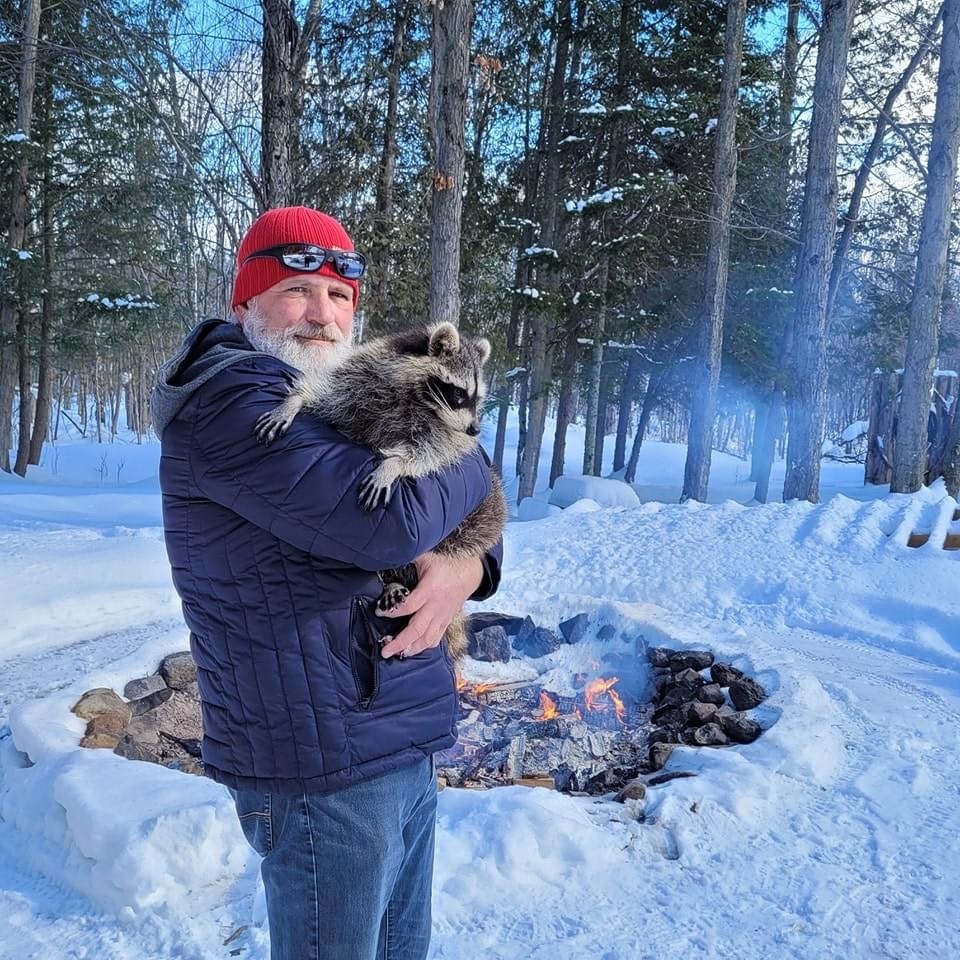PAULA LABONTE
Have you ever looked at a raccoon and thought that it would be a great pet? Or perhaps it’s foxes that you think are adorable, I remember my sister wanting a skunk, no, she never got one. Do you feed the squirrels? Have you named them, are they on a feeding schedule? Are cats and dogs attracted to you wherever you go? Have you ever come across an injured animal felt the need to step in? Help a snapping turtle across Power Dam? Save a mouse? Side note: The last mouse I “saved” was living the high life at Cline House Gallery until I released it into a snowbank… If you’ve answered, yes to any of the above questions or you were silently nodding- then the next part of this article is for you. The one and only raccoon whisper, Ron Graham gives us some rescuing and rehabbing advice.
Ron: First, they are wild animals-don’t get bit. As friendly as they are they could turn on you pretty quick especially while feeding.
If you find an abandoned animal, keep it warm in a box with blankets and use the proper food, powdered kitten food in a small bottle. It can be purchased at any pet store.
Never pet a porcupine or a skunk. Hope I don’t need to tell you why. (Enter legal disclaimer?)
Don’t take too many in or you’ll be known as a crazy raccoon guy or girl (…cause you’re not?).
Also get ready to spend a fortune on peanuts and marshmallows. If you let them in the house they’re harder to get out than your teenagers (and ruin more stuff).
Practice your raccoon language. As you never know you might have to communicate with
them in their native tongue.
Always remember, raccoons are like furry little ninjas with a penchant for mischief-prepare for
surprise attacks!
If a raccoon gives you a “side-eye,” it’s probably critiquing your rehab techniques. Take it as a
professional development opportunity.
Invest in a tiny raccoon-sized graduation cap for those triumphant release moments. Every
rehab deserves a celebratory hat toss!
When in doubt, consult with your raccoon patients on important decisions-after all, they’re
the ones with the real hands-on experience in the wild.
Practice your best raccoon impressions. You never know when you might need to
communicate in their native language (chittering and paw gestures).
Remember, raccoons have a keen sense of style. Try to incorporate some fashionable
bandages or accessories into their rehab outfits.
Embrace the chaos-raccoon rehab is a bit like herding mischievous fluffballs. Enjoy the ride!
Keep a stash of snacks hidden-both for you and for bribing.
Most importantly don’t get attached they will be gone all winter and you will be lonely and worried, more than usual.


